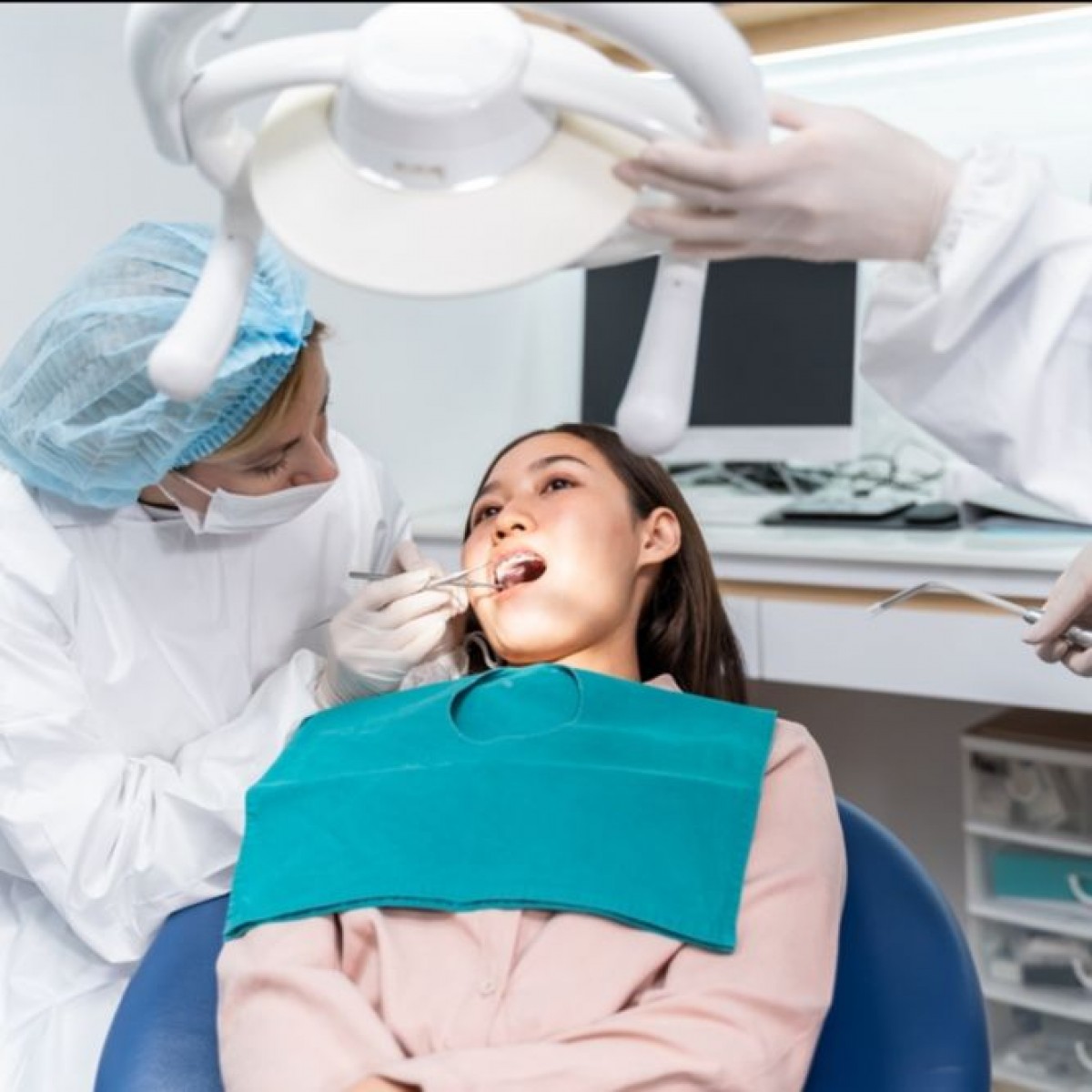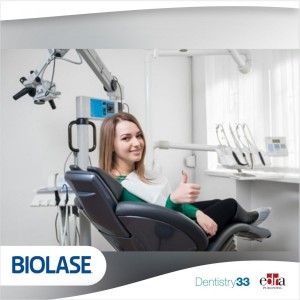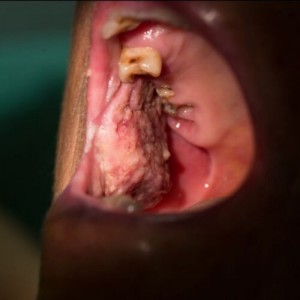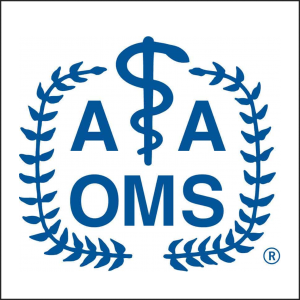
The interplay among a dental procedure, infective endocarditis, and an acute ischemic stroke
Background
This case report highlights the rare association among a dental procedure, infective endocarditis, and an acute ischemic stroke.
Case Description
A 54-year-old woman who experienced an acute ischemic stroke 5 weeks after a tooth extraction is described. The initial symptoms of this patient included mild to moderate word-finding difficulty and right facial droop. Computed tomographic angiography revealed a left M1 segment middle cerebral artery occlusion (thrombolysis in cerebral infarction scale, 0) with reconstitution of the distal middle cerebral branches through arterial collaterals. After initial administration of tissue plasminogen activator, endovascular thrombectomy was successfully performed with thrombolysis in cerebral infarction scale 3 (complete) recanalization. After the procedure, the patient showed improvement in language and neurologic deficits. Imaging showed multifocal, bilateral, cortical, and deep brain hemorrhages. Blood cultures grew Streptococcus mitis, ultimately leading to the diagnosis of endocarditis. Echocardiographic imaging revealed moderate to severe aortic insufficiency, a mitral valve vegetation, and mild mitral valve regurgitation. After evaluation by the cardiothoracic surgery team, the patient was discharged with intravenous antibiotics and short-term outpatient follow-up with the cardiothoracic surgery team.
Practical Implications
Dental procedures, although generally safe, can introduce oral bacteria into the bloodstream, leading to bacterial seeding of cardiac valves and subsequent infective endocarditis. Recognizing infective endocarditis subsequent to a dental procedure, including a tooth extraction, as a potential cause of an acute ischemic stroke is vital so that prompt treatment can be initiated.
Authors: Momodou G. Bah, BSc, Zachary M. Wilseck, MD, Leanne Y. Lin, MD, MPHS, Andrew J. Peterson, DDS, Neeraj Chaudhary, MD, Joseph J. Gemmete, MD
Source: https://jada.ada.org/article/S0002-8177(23)00686-4/abstract
 Related articles
Related articles
“I’m a dental assistant and I thought there could be a better way to retract the cheek or tongue without the hassle of the cotton rolling or slipping out of place,” said an InventHelp inventor...
Oral Hygiene & Prevention 01 August 2023
Dental tourism: could flying after treatment create problems?
Millions of people travel every year for health care and, mainly, they do it to obtain therapies at a lower cost than in the country of origin.
Biolase recently announced its first-quarter financial results. The company reported increased international laser sales by 22% year over year. In addition Biolase said that it had a record quarter...
Anderson is currently the solo practitioner in his dental practice. He has 12 people on his dental team, and they make the practice run, he said. The team...
Oral Hygiene & Prevention 06 February 2023
Quantifying the risk of prosthetic joint infections after invasive dental procedures
The authors aimed to identify any association between invasive dental procedures and late periprosthetic joint infections and whether antibiotic prophylaxis reduces LPJI incidence after IDPs.
 Read more
Read more
Implantology 17 October 2025
To investigate whether cross-section imaging influences the planning and therapy of standard implant cases in the posterior mandible.
Editorials 17 October 2025
In her new role she is providing direction and supporting initiatives that elevating UFCD's translational research agenda.
Products 17 October 2025
Presto Dental, a new brand affiliated with the Abra Health Group, proudly announces the grand opening of its flagship Connecticut location in Bridgeport. This state-of-the-art.
News 17 October 2025
The American Association of Oral and Maxillofacial Surgeons (AAOMS) celebrated the achievements of more than 30 individuals at the association’s 107th Annual Meeting, Scientific Sessions and...
Phenom, an applied AI company that helps organizations hire faster, develop better, and retain longer, announced The Aspen Group (TAG) earned the Brandon.















